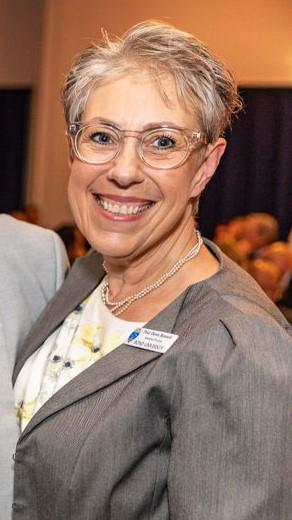
“What do you want to be when you grow up?”
It’s a question posed to children for generations and sparks dreams of becoming doctors, astronauts, teachers and pop stars.
More serious discussions about future careers happen in Year 10 when students make subject choices that determine if they go to university or not.
But an expert on university graduate employability says parents should start discussing possible career paths with their children as early as Year 8 - particularly if they attend a high school that lacks specialist careers practitioners.

Bond University Assistant Provost Dawn Bennett said the goal was not to lock students into a specific job, but to help them to identify their strengths, interests and passions.
"It's not so much what job you want, but what are you good at? What do you like doing? And what might that look like if you were being paid for it?” Professor Bennett said.
While many high schools employ specialist careers practitioners to assist students with future study and work options, schools in remote and lower socio-economic areas often do not.
This feeds into lower levels of confidence among students entering university and poorer graduation and employment outcomes.
Professor Bennett led a recent study into the confidence levels of almost 6000 first-year students at an Australian university and found those from non-English speaking backgrounds were most likely to believe they would struggle to find a job at the end of their degree.
Disabled students and Indigenous students also lacked confidence in their ability to successfully study and gain employment.
Some disadvantaged students faced multiple barriers to achieving their educational and career goals.
“They might also be from a regional area, be a woman in STEM, be living with a disability and be first-in-family to attend university, so that kind of compound disadvantage is really complicated,” Professor Bennett said.
She called for early intervention to arrest low levels of confidence among marginalised students.
“Traditionally a university careers service has assisted students who are in their final semesters of study and it's a brokerage – linking students who are nearing graduation to potential employment,” Professor Bennett said.
“Careers educators need to be involved from the first semester of study, working with students to ask questions like, Why are you here? What would you like at the end of it? Where do you feel more or less confident?
“Early success in higher education – such as doing well in their first assessment - is absolutely critical to avoid attrition in the first year.”
Professor Bennett’s research is timely following a push by Federal Education Minister Jason Clare for more students from the regions and disadvantaged backgrounds to attend university or TAFE.
The National Skills Commission estimates nine in 10 jobs created over the five years to 2026 will require a post-compulsory qualification.
But don’t be overly concerned if your Year 8 teenager is determined to become a music star. Professor Bennett worked as a professional violist before entering academia and has performed with professional orchestras around the world.
“Research shows the next generation of workers may have as many as seven different careers over their lifetimes,” she said.
“The most important graduate attribute is the willingness and ability to learn. That’s what employers want.”
Careers development resources for students:

